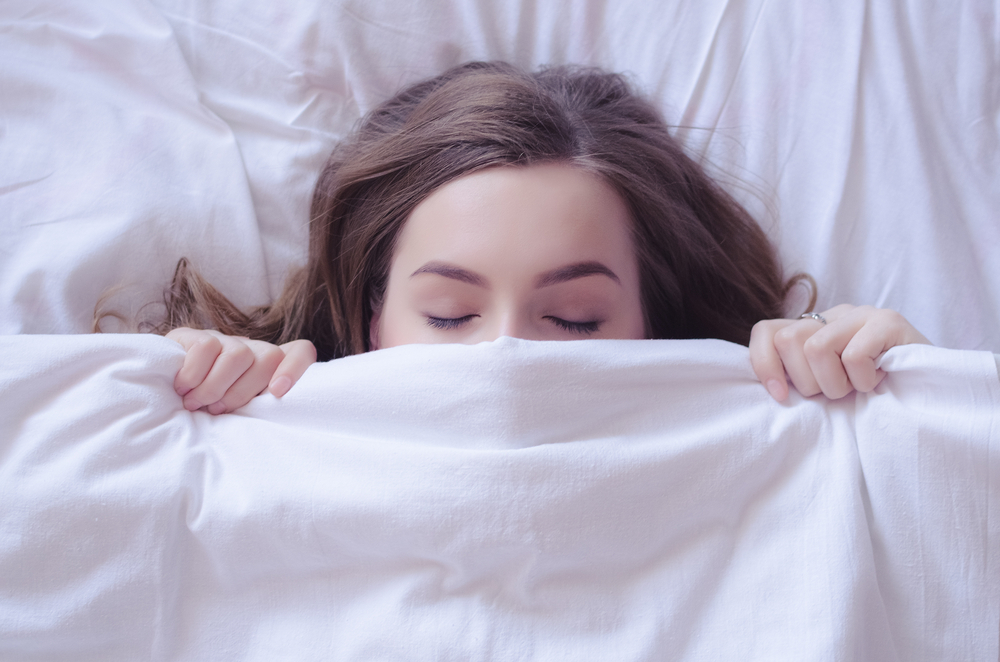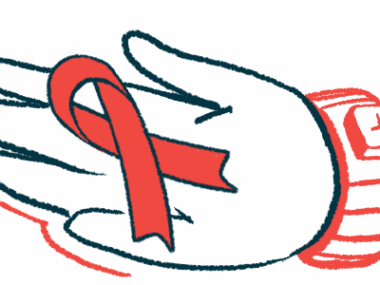Applying the Science of Happiness to Caregiving
Written by |

I cried buckets in the months after my husband, Todd, was diagnosed with ALS. When I met with a counselor, I described my overwhelming sadness. “It is sad,” he agreed. “When you read stories, they have happy parts and sad parts. This is a sad part of your story.” Hearing him acknowledge that helped a little.
Even after Todd and I learned to live with his diagnosis, the cloud didn’t go away. It’s heartbreaking to watch someone I love continually lose function and experience pain and discomfort.
Ongoing loss demands ongoing grief. And yet somehow, I need to keep living with this disease. Aside from a cure or a miracle, I don’t think I’m going to shake sadness, but I want to keep going for the sake of my husband and kids.
I recently came across the work of Laurie Santos, a professor of psychology at Yale who teaches a popular class on the science behind happiness. She makes the class available online and hosts a podcast called “The Happiness Lab.”
The science behind happiness reveals why caregivers struggle. It’s difficult to put into practice the most basic principles when caregiving is so demanding. But even if we can only partially apply habits that boost emotional well-being, it will make things better than they would have been otherwise.
Four of Santos’ tips to promote happiness were highlighted in a Reader’s Digest article. They include:
1. Sleep
Sleep can be hard to come by for caregivers, but it is important. In the “Sleep Right” episode of “The Happiness Lab,” Santos interviews Arianna Huffington, co-founder of The Huffington Post and author of the book “The Sleep Revolution.” People need 7-9 hours of sleep each night, and not getting enough has physical and mental consequences, such as cognitive decline and depression.
I became sleep-deprived as Todd’s condition worsened and he needed more and more help throughout the night. After a couple years of inadequate sleep, I was at my breaking point, so we started fundraising to hire nighttime caregivers. Once we began getting nighttime help, sleep felt like a drug. The more I got, the more I wanted.
Initially, I thought I could get by on one good night of sleep a week, and a few hours on the other nights. In reality, I need at least seven hours of sleep every night to be the best version of myself. When I get enough sleep, I’m a better wife, mom, and caregiver.
2. Exercise
Exercise is a big life-saver. I feel a sense of calm after I’ve worked out for 30 minutes, and research shows that exercise fights depression.
It helps me deal with stress, so I make it a priority. When my gym closed due to the pandemic, I switched to cross-country skiing. When the snow melted, I took up Nordic walking.
I squeeze in my daily exercise whenever it happens to work with Todd’s caregiving schedule. When all else fails — if the weather is bad or if I can’t leave Todd because his lungs keep filling up — I run on a mini-elliptical machine in his room.
3. Social connection
It’s difficult to maintain social connection when we become homebound due to our loved one’s increasing needs. Early in Todd’s disease, I attended mom groups and writer clubs, or visited with friends at their homes or at restaurants.
But now it’s unpredictable when Todd will need my help in the bathroom or with an assisted cough. And especially these days with the pandemic, most of my social connection outside of my immediate family is via telephone. Calls with old friends boost my mood. I appreciate the friends who have stuck with us.
Sometimes, it feels like I’m on a different planet than most of my peers, so I’m thankful to have connected online with other spouse caregivers, some of whom also have young children.
4. Acts of kindness
Caregivers have the opportunity to perform acts of kindness every day. One of my friends whose husband also has ALS says she views this experience as the big calling of her life.
The day in and day out of caregiving is often mundane, and sometimes really difficult. Yet many in the ALS community go beyond kindness to their loved ones by sharing resources and ideas from their experiences. If we can reframe our service as an important mission, it can boost our mental health.
Even though the pursuit of happiness is woven into the American psyche and enshrined in the Declaration of Independence as an unalienable right, I’m not sure it should be our goal.
Happiness may not be attainable for those of us living in the shadow of a terminal illness, so perhaps instead we should, in the words of my colleague Matthew Lafleur, “transcend cheerfulness to something solid: purpose.”
***
Note: ALS News Today is strictly a news and information website about the disease. It does not provide medical advice, diagnosis, or treatment. This content is not intended to be a substitute for professional medical advice, diagnosis, or treatment. Always seek the advice of your physician or other qualified health provider with any questions you may have regarding a medical condition. Never disregard professional medical advice or delay in seeking it because of something you have read on this website. The opinions expressed in this column are not those of ALS News Today or its parent company, Bionews Services, and are intended to spark discussion about issues pertaining to ALS.






John alvarez
Dear Kristin, I have stumbled across this site only a couple of months ago. I find your articles touching and helpful. However I cannot help but ask have you not thought of Todd not going down what I call the Stephen Hawking path? I have battled beast, as we call it in Australia, for over seven years.
Kristin Neva
Thanks for your comment, John. Apart from effective treatment coming to market soon, based on Todd's ALS progression, it is unlikely that he will be on as slow of a path as Stephen Hawkings but we are thankful he has outlived his prognosis by years. I guess we can quote Yogi Berra: "It ain't over till it's over."
Maya
Caregiver here to a fALS and it is exhausting, tiring, and not rewarding. I think an important thing left out health is the emphasis on mental health If the caregiver. Too often I find posts on ALS forums and websites sugarcoating or dancing around the blunt reality of how much it sucks out of caregivers, and I believe that deserves to be de-stigmatized. No, not cALS are saints. Not all find any reconciliation with it. My therapist is my lifeline, but I am glad you mentioned exercising, and staying social, definitely takes the edge off, in addition to hiring aides/nurses.